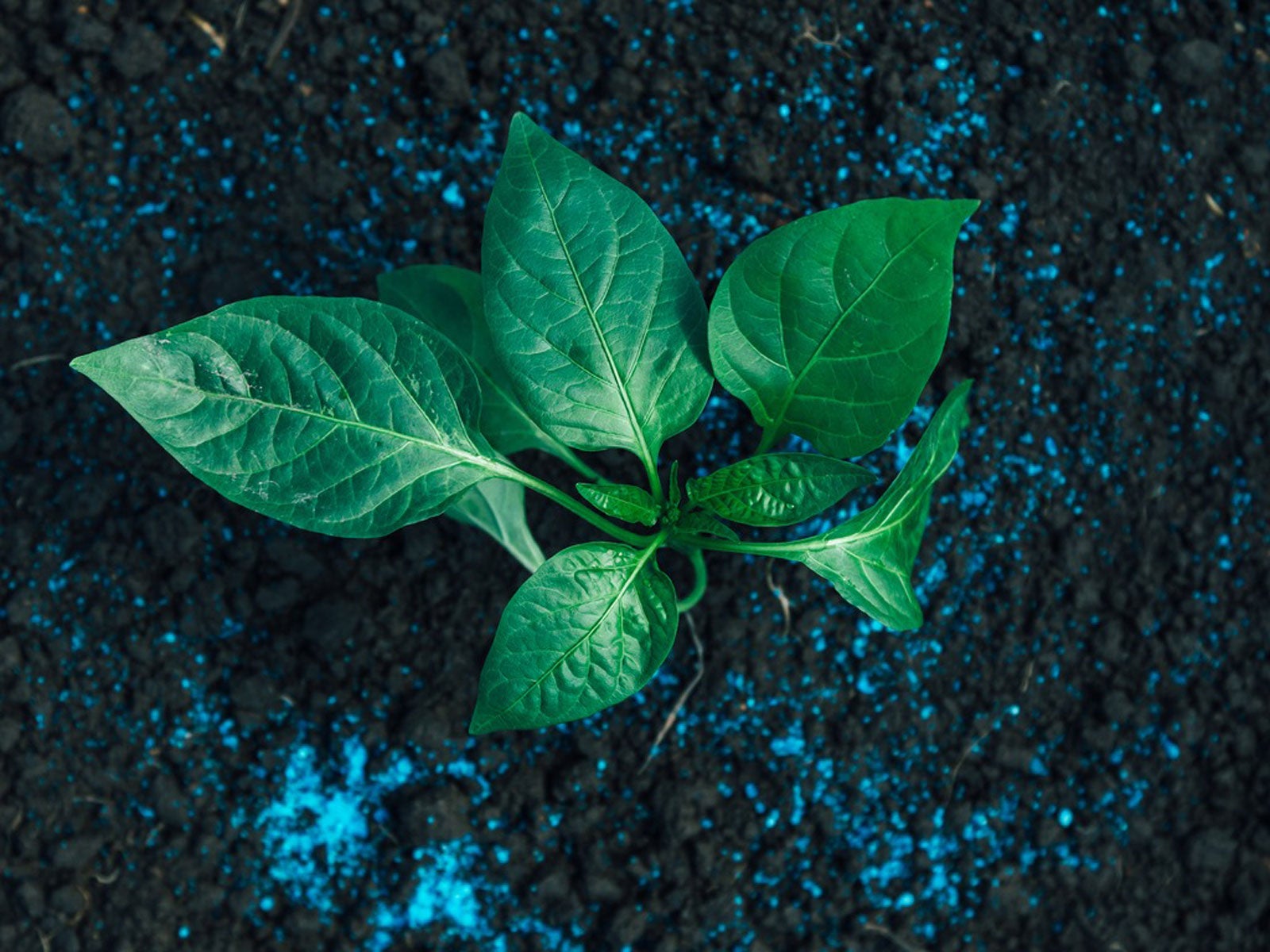Best Fertilizers for Peppers: A Comprehensive Overview to Boost Your Harvest
Best Fertilizers for Peppers: A Comprehensive Overview to Boost Your Harvest
Blog Article
Organic Vs. Synthetic Fertilizers: Which Is Best for Supporting Healthy Pepper Plants?
In the world of supporting healthy and balanced pepper plants, the selection between organic and synthetic fertilizers stands as an essential choice with significant effects. While both alternatives objective to give vital nutrients to sustain plant growth, the subtleties of their effect on the soil, plant wellness, and the setting spark a dispute that mirrors throughout the horticulture neighborhood. Understanding the unique benefits and possible challenges of each fertilizer type is critical for pepper cultivators looking for to maximize their returns while maintaining a sustainable and eco-conscious technique.
Advantages of Organic Plant Foods
Organic plant foods supply a sustainable and environmentally-friendly technique to beneficial pepper plants, providing important nutrients without using synthetic chemicals. These all-natural fertilizers are stemmed from organic resources such as compost, manure, bone dish, and seaweed, promoting soil wellness and biodiversity. Unlike artificial plant foods, natural choices release nutrients gradually, making sure a balanced and stable supply for pepper plants to prosper.
One significant advantage of organic fertilizers is their ability to enhance soil structure and water retention. By enhancing soil health, natural plant foods advertise advantageous microbial activity, which assists in nutrient uptake by pepper plants. Additionally, organic plant foods lower the threat of chemical run-off, shielding water resources from air pollution and protecting the setting.
Moreover, organic fertilizers contribute to lasting soil fertility by advertising the growth of beneficial soil organisms. These microorganisms assist damage down raw material, launching nutrients in a type that is easily accessible to pepper plants. best fertilizers for peppers. By promoting a healthy and balanced soil community, organic fertilizers sustain lasting pepper growing practices that benefit both plants and the environment
Downsides of Artificial Plant Foods
Artificial plant foods, in comparison to their natural counterparts, posture different downsides when utilized to nourish pepper plants, impacting both plant wellness and environmental sustainability. One significant downside of synthetic plant foods is their propensity to seep nutrients from the soil rapidly.
Additionally, the overuse of artificial fertilizers can add to water air pollution. Excess fertilizers not soaked up by plants can clean away right into water bodies, resulting in eutrophication, where algae flowers deplete oxygen levels in the water, hurting marine life. Artificial plant foods are usually acquired from non-renewable sources, such as fossil fuels, adding to carbon discharges and ecological destruction throughout their production.
Nutrient Absorption Contrast
When contrasting natural and artificial plant foods in terms of nutrient absorption, organic plant foods have the advantage of providing a much more balanced and slow-release resource of nutrients. Organic fertilizers include a selection of macro and micronutrients that are Visit Website not only valuable for the plants however additionally advertise healthy and balanced dirt microbial task, which helps in nutrient uptake.
In addition, natural plant foods improve dirt framework and water retention capacity, allowing pepper plants to gain access to nutrients much more successfully. This better dirt top quality promotes root advancement, enabling better nutrient absorption. Synthetic plant foods, although originally improving plant development as a result of their high nutrient concentrations, may prevent lasting nutrient absorption by derogatory dirt health gradually.
Ecological Effect Considerations

On the other hand, artificial plant foods, although usually even more concentrated and instantly offered to plants, can have detrimental effects on the atmosphere otherwise applied correctly (best fertilizers for peppers). Their manufacturing needs high energy inputs, resulting in greenhouse gas emissions and adding to climate modification. Moreover, the runoff of excess artificial plant foods can pollute water sources, leading to eutrophication and damaging aquatic communities.
Finest Plant Food Practices for Peppers
To attain this, it is important to follow finest plant food methods tailored to the specific demands of pepper plants. One critical technique is to perform a dirt test prior to using any kind of fertilizers.
Another crucial technique is to fertilize pepper plants at the correct time. Commonly, peppers take advantage of obtaining plant food at planting and then again when they begin to blossom. Over-fertilizing can lead to vitamins and mineral discrepancies and hurt the plants, so it is important to adhere site web to suggested application prices.
Additionally, choosing a well balanced fertilizer with an NPK proportion that fits pepper plants' requirements is basic. Organic plant foods, such as compost or manure, can be exceptional choices as they launch nutrients gradually and boost soil framework over time. Synthetic plant foods can give a look at this web-site fast nutrient increase when required. Eventually, incorporating natural and artificial fertilizers judiciously can help nurture healthy pepper plants while lessening environmental influence.
Final Thought

Organic plant foods use a lasting and environmentally-friendly technique to nourishing pepper plants, offering vital nutrients without the use of artificial chemicals. Unlike artificial plant foods, organic options launch nutrients gradually, making sure a steady and balanced supply for pepper plants to prosper.
Synthetic fertilizers, in comparison to their natural counterparts, pose various downsides when used to nurture pepper plants, affecting both plant health and wellness and environmental sustainability. When comparing artificial and natural fertilizers in terms of nutrient absorption, natural plant foods have the advantage of supplying a much more well balanced and slow-release resource of nutrients.Furthermore, natural fertilizers improve dirt structure and water retention capacity, enabling pepper plants to access nutrients extra efficiently.
Report this page